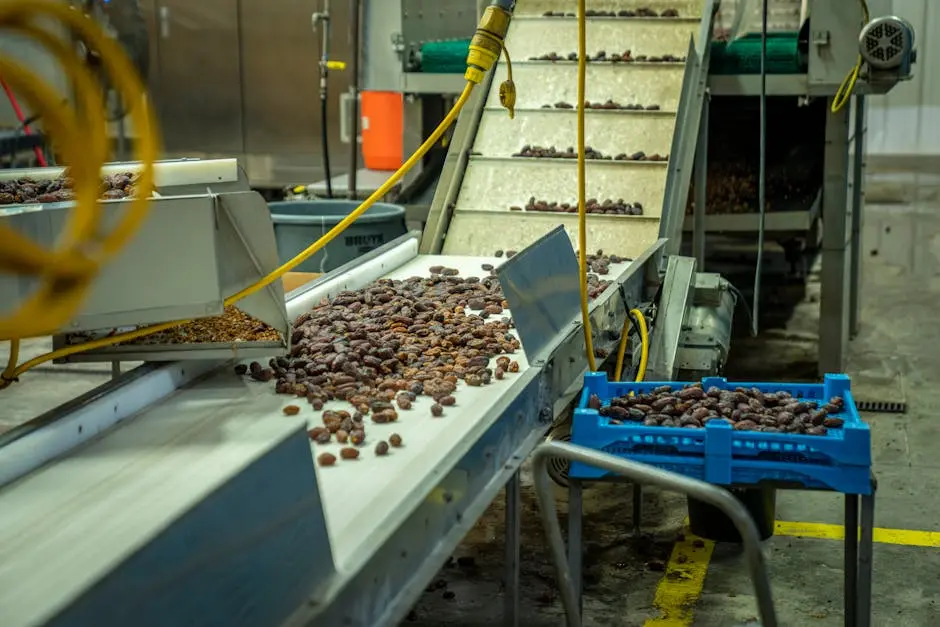
How Does Ethical Coffee Impact the Environment?
Ethical coffee is not just a trend; it’s a movement towards sustainable practices in the coffee industry. But how does it truly impact our environment? This blog will explore the various ways ethical coffee production can contribute to a healthier planet.
Understanding Ethical Coffee
Ethical coffee refers to coffee that is produced under fair trade conditions. This ensures that farmers receive fair wages and work in safe environments.
By choosing ethical coffee, consumers support environmentally friendly farming practices. These practices not only enhance the quality of the coffee but also protect the surrounding ecosystem.
Furthermore, ethical coffee often comes from organic farms, which avoid synthetic pesticides and fertilizers. This is crucial, as such chemicals can harm local wildlife and degrade soil health.
In essence, understanding ethical coffee helps us appreciate the broader implications of our consumption choices. It signifies a commitment to sustainability and social responsibility.
The Role of Sustainable Farming Practices
Sustainable farming practices are at the heart of ethical coffee production. These methods prioritize using resources in a way that preserves the environment for future generations.
Implementing crop diversification is a major sustainable practice. It helps reduce the risk of disease and pests while enhancing soil fertility. As a result, coffee plants thrive better, and the natural habitat flourishes.
Additionally, sustainable farmers often engage in agroforestry, where coffee is grown alongside trees. This approach not only provides shade for coffee plants but also supports local biodiversity, creating habitats for various species.
In the long term, these sustainable practices contribute to a more resilient environment, which in turn creates a more stable economy for coffee producers. It’s a win-win scenario.
Biodiversity and Ecosystem Health
Biodiversity is vital for a healthy ecosystem, and ethical coffee contributes significantly to this aspect. By promoting varied plant life in coffee-growing regions, we help preserve the natural environment.
Coffee plantations that embrace ethical practices support a range of species, from insects to birds, that play essential roles in pollination and pest control. This biodiversity is crucial for maintaining ecological balance.
Moreover, preserving native flora and fauna not only enhances the beauty of the landscape but also mitigates the impacts of climate change. Healthy ecosystems are better equipped to cope with changing conditions.
Therefore, choosing ethical coffee becomes a direct action towards fostering ecological health. It’s about ensuring that future generations enjoy rich, vibrant ecosystems.
Reducing Carbon Footprint
One of the key benefits of ethical coffee production is its potential to reduce carbon footprints. Traditional coffee farming often leads to deforestation, which contributes significantly to greenhouse gas emissions.
On the other hand, ethical coffee methods emphasize practices such as shade-grown coffee. This technique allows coffee to grow under a canopy of trees, which captures carbon dioxide and promotes healthier air.
Moreover, these practices encourage farmers to adopt renewable energy sources. With less dependency on fossil fuels, the entire production process becomes more environmentally friendly. It’s about taking responsible steps to nurture the planet.
By prioritizing ethical coffee, consumers inherently support methods that help combat climate change. Together, we can make choices that benefit the earth and our future.
Addressing Climate Change
Climate change poses a significant threat to coffee production, as it affects rainfall patterns and temperatures. Ethical coffee producers are increasingly aware of these challenges and are taking action to adapt.
One effective approach is the implementation of climate-smart agriculture. This includes practices like planting drought-resistant coffee varieties and improving water management strategies. Such measures ensure that coffee farming remains viable despite climatic challenges.
Moreover, supporting ethical coffee indirectly addresses climate change by promoting environmental stewardship. When consumers choose coffee linked to ethical practices, it creates a ripple effect that can inspire further action in the industry.
In essence, ethical coffee is not merely about the beverage itself, but about a broader commitment to sustainability and resilience in the face of climate change.
Supporting Local Communities
Choosing ethical coffee also means supporting local communities that depend on coffee farming for their livelihoods. This is crucial for the overall development of these regions, as fair wages can uplift many families.
Ethical coffee initiatives often provide additional training and resources, empowering farmers with knowledge about sustainable practices. This investment in human capital leads to stronger communities with better economic stability.
Additionally, when communities thrive, they are more capable of conserving their natural surroundings. Access to fair trade markets encourages local producers to prioritize sustainable practices that benefit both their families and the planet.
Thus, supporting ethical coffee is a conscious effort to boost local economies, foster community resilience, and promote environmental stewardship all at once. It’s about making choices that echo far beyond the cup.
The Importance of Ethical Coffee Choices
Choosing ethical coffee is not only beneficial for coffee farmers but also has a substantial positive impact on the environment. By supporting sustainable practices, we can foster biodiversity, reduce pollution, and promote a more equitable world.

